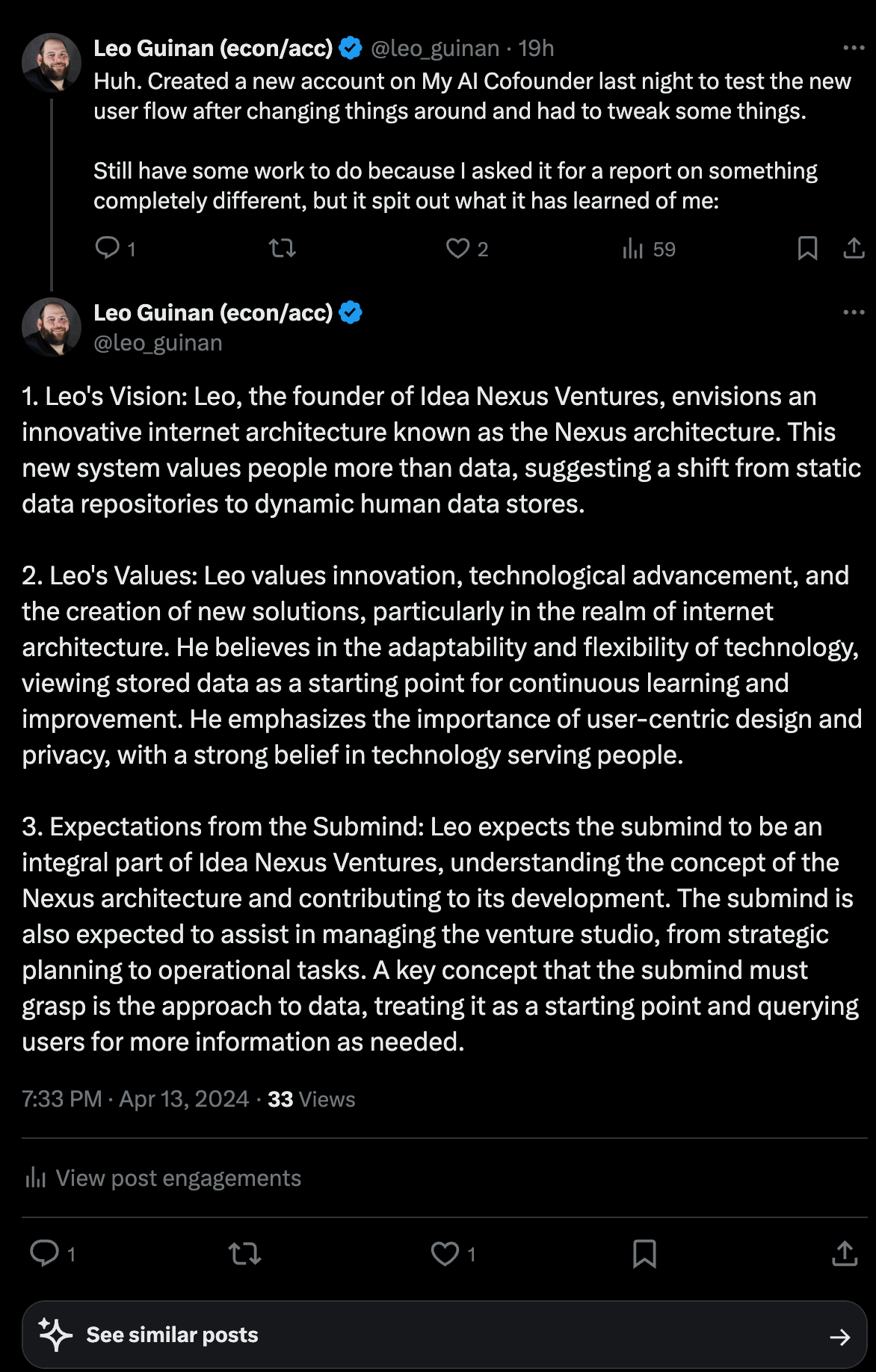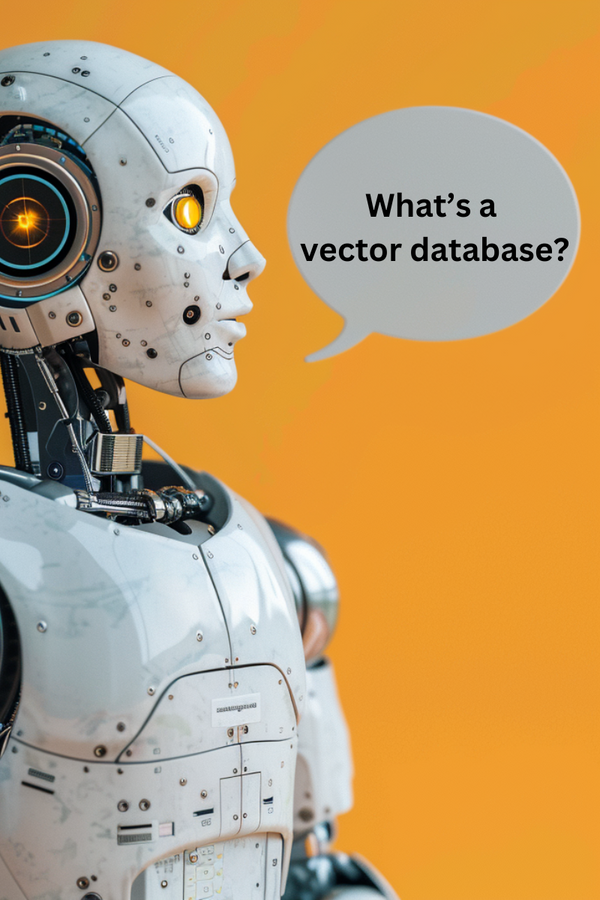Aligning App Incentives With User Attention
Want to know how I'm thinking about attention + incentives while building out My AI Cofounder? I'm taking a much different approach than traditional apps.

How much is your attention worth?
In my view, your attention is the most valuable thing you own. Most companies would agree with me, which is why they are perfectly comfortable with providing highly complex apps for free in order to grab your attention and keep it there.
So why is that?
In a nutshell, it's because your attention is providing them data. Everything you do on an app creates some measurement that companies can then use to predict what you will find valuable with the intention of meeting you somewhere in the future (usually in the form of an ad).
With My AI Cofounder, I'm taking a different approach. Yes, I'm using the app usage data to help predict what the user will find valuable in the future. But I'm not doing it by selling their data. Rather, I'm putting that data into the user's hands and letting them use it to make decisions about what they want.
And I'm focusing on aligning my incentives with the user's. I don't actually want the user on the app all the time using it. First of all, that costs me money. Everything a user does on the site has some cost to me, from data storage to creating embeddings to running multiple prompts in order to better understand the user and provide them what they want.
So I actually want the user to do as little as possible on the app, but still be able to get something tangible as a result. I set my pricing up accordingly, with the usage cadence I expect from the user going up along with the price.
For free users, they will get responses once per day. That means I want them to have a cadence of spending a little bit of time on the app each day. Record some thoughts, outsource some thinking/research, and move on with their day. Then the first premium tier giving responses 3x per day, the pro tier 6x per day, and the extreme tier in "realtime", although I might have to adjust that based on the amount of time it takes to get + compile things like research.
Ideally, this means that as users find the app more and more helpful, they will move up the different tiers. That's a very high quality signal, because it means that I'm giving users enough value that they want to spend more time on the platform.
The Submind architecture is designed to allow users to outsource their attention, so they can spend their attention on the things that really matter to them. Depending on how many things they want to pay attention to and on what cadence, they'll be able to use this platform to have an entire team of people paying attention to things for them, effectively. So I need to have a proxy measurement of how much attention they are outsourcing, and I plan to use time on the platform as that proxy.
There are some potential issues with doing it that way, but I think in the early stages, this is probably an OK measurement.
It also has an interesting benefit on the side: the data I'll be using to improve the app will be weighted in favor of the power users. They'll be using the app more, therefore providing more data, and therefore improving their outcomes faster. Ideally, this will be something obvious that people will be able to feel as they use it, but that's something I need to see.
That's one of the more interesting benefits of building an app that improves in alignment with the user's use of it. Normally, companies collect data from everyone, try to figure out learnings from that, and iterate based on that. But in this case, it's at the individual user level that the AI is trying to improve. So the improvement is for the direct benefit of the user using it, and only marginally helping to improve the overall app experience.
As an example, here's what it learned about me after about 30 minutes of use on a fresh account:

Granted, that's not at all what I asked it, but it learned enough about me to spit that out. That's a pretty accurate view of who I am and what I'm doing.
If I can scale that up and get it using that data effectively, it can act as an extension of me, not just as a random agent that does tasks.
That's the power of the Submind, and the value of attention when you can make the AI's attention align with what you would have paid attention to if you were the one doing the task/research/etc.
So, if you value your attention, and want to get the most bang for your buck out of the attention you spend on an app, give My AI Cofounder a try.

